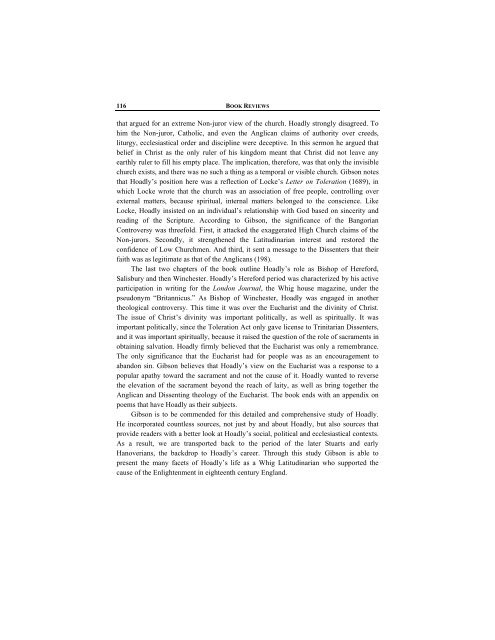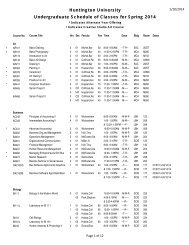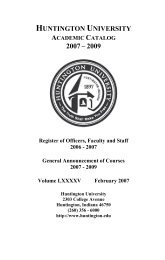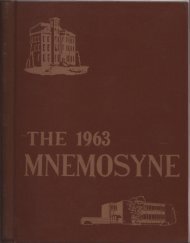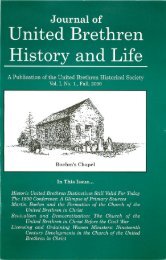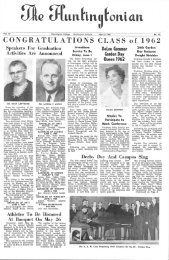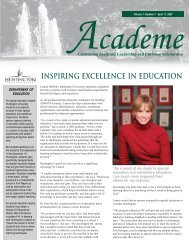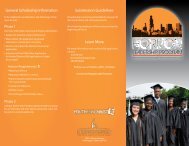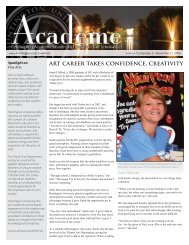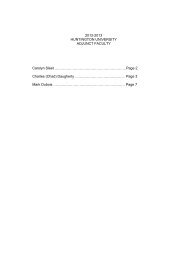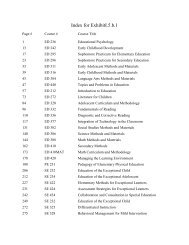Gillian Clark, Christianity and Roman Society - Huntington University
Gillian Clark, Christianity and Roman Society - Huntington University
Gillian Clark, Christianity and Roman Society - Huntington University
Create successful ePaper yourself
Turn your PDF publications into a flip-book with our unique Google optimized e-Paper software.
116 BOOK REVIEWS<br />
that argued for an extreme Non-juror view of the church. Hoadly strongly disagreed. To<br />
him the Non-juror, Catholic, <strong>and</strong> even the Anglican claims of authority over creeds,<br />
liturgy, ecclesiastical order <strong>and</strong> discipline were deceptive. In this sermon he argued that<br />
belief in Christ as the only ruler of his kingdom meant that Christ did not leave any<br />
earthly ruler to fill his empty place. The implication, therefore, was that only the invisible<br />
church exists, <strong>and</strong> there was no such a thing as a temporal or visible church. Gibson notes<br />
that Hoadly’s position here was a reflection of Locke’s Letter on Toleration (1689), in<br />
which Locke wrote that the church was an association of free people, controlling over<br />
external matters, because spiritual, internal matters belonged to the conscience. Like<br />
Locke, Hoadly insisted on an individual’s relationship with God based on sincerity <strong>and</strong><br />
reading of the Scripture. According to Gibson, the significance of the Bangorian<br />
Controversy was threefold. First, it attacked the exaggerated High Church claims of the<br />
Non-jurors. Secondly, it strengthened the Latitudinarian interest <strong>and</strong> restored the<br />
confidence of Low Churchmen. And third, it sent a message to the Dissenters that their<br />
faith was as legitimate as that of the Anglicans (198).<br />
The last two chapters of the book outline Hoadly’s role as Bishop of Hereford,<br />
Salisbury <strong>and</strong> then Winchester. Hoadly’s Hereford period was characterized by his active<br />
participation in writing for the London Journal, the Whig house magazine, under the<br />
pseudonym “Britannicus.” As Bishop of Winchester, Hoadly was engaged in another<br />
theological controversy. This time it was over the Eucharist <strong>and</strong> the divinity of Christ.<br />
The issue of Christ’s divinity was important politically, as well as spiritually. It was<br />
important politically, since the Toleration Act only gave license to Trinitarian Dissenters,<br />
<strong>and</strong> it was important spiritually, because it raised the question of the role of sacraments in<br />
obtaining salvation. Hoadly firmly believed that the Eucharist was only a remembrance.<br />
The only significance that the Eucharist had for people was as an encouragement to<br />
ab<strong>and</strong>on sin. Gibson believes that Hoadly’s view on the Eucharist was a response to a<br />
popular apathy toward the sacrament <strong>and</strong> not the cause of it. Hoadly wanted to reverse<br />
the elevation of the sacrament beyond the reach of laity, as well as bring together the<br />
Anglican <strong>and</strong> Dissenting theology of the Eucharist. The book ends with an appendix on<br />
poems that have Hoadly as their subjects.<br />
Gibson is to be commended for this detailed <strong>and</strong> comprehensive study of Hoadly.<br />
He incorporated countless sources, not just by <strong>and</strong> about Hoadly, but also sources that<br />
provide readers with a better look at Hoadly’s social, political <strong>and</strong> ecclesiastical contexts.<br />
As a result, we are transported back to the period of the later Stuarts <strong>and</strong> early<br />
Hanoverians, the backdrop to Hoadly’s career. Through this study Gibson is able to<br />
present the many facets of Hoadly’s life as a Whig Latitudinarian who supported the<br />
cause of the Enlightenment in eighteenth century Engl<strong>and</strong>.


